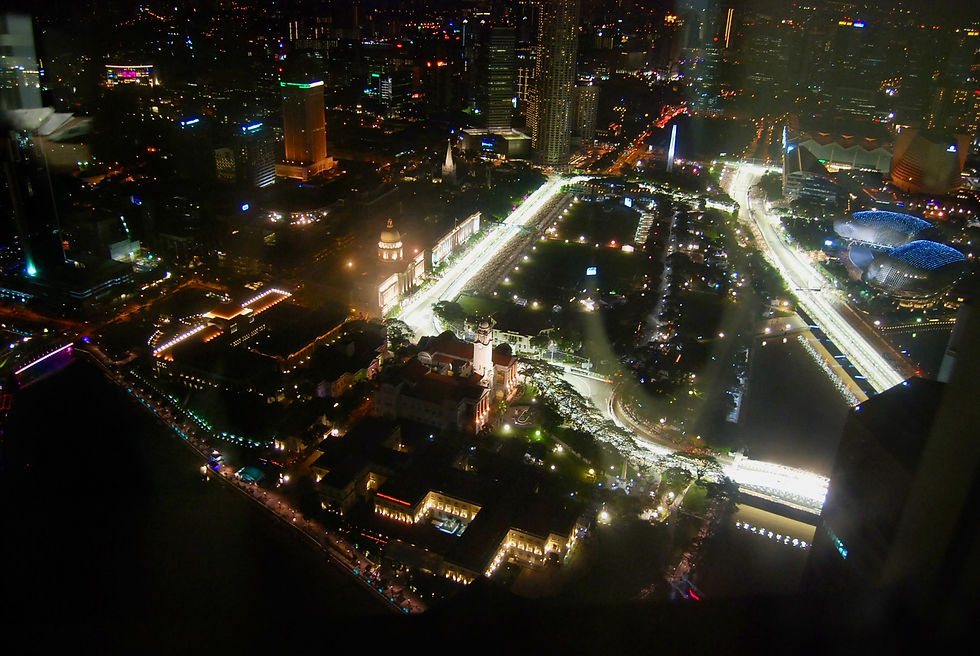- K

- Oct 2, 2022
- 3 min read
Updated: Nov 18, 2025
The last couple of weeks have been incredibly exciting for Singapore: SuperReturn Asia, DealStreetAsia's PE/VC event, the Milken Asia Summit, Forbes CEO conference and the F1. Visitors getting into Singapore today are neither required to serve any quarantine nor wear masks in public. Everything feels like it's been reverted back to 2019 - big MICE events, face-to-face meetings, public gatherings, etc. It almost feels surreal.
Except that I am not in Singapore.
Envious onlookers residing in Hong Kong can only drool at the party from afar and read about these large-scale social events in the news and LinkedIn feeds.

Last week, Hong Kong finally announced that it was lifting mandatory quarantine for arrivals into the city.
From the 14-day quarantine implemented last year to 7 days and recently to 3+4, inbound travelers now simply need to do 0+3 i.e. no quarantine but just a 3-day monitoring period (still better than serving quarantine in China).
It was a long awaited step, but some have said this was too little too late.
Against the backdrop of an increasing number of people and firms moving from HK to Singapore, and the recent high-level summits taking place over the last couple of weeks, I guess HK is finally saying "enough is enough and we have to get back in the game or run the risk of really losing out in the long term."
It seems like Singapore has played its cards well and somehow "gotten ahead of the game". According to the HKEx quoted in an SCMP article,
"Singapore may have the edge at the moment, but Hong Kong has more longer-term advantages to attract capital and talent"
Despite COVID restrictions, the relatively high costs of housing, stilfing space and population exodus, there is some truth in HK being better positioned than Singapore in terms of leveraging the resources of Asia's largest economy - China.
Besides, conference go-ers are generally indifferent to where the party is held as long as they are invited and there is reasonable certainty of a huge turnout.
Understandably, those sitting on either side are motivated to swing the odds back into their favour.
I am not trying to pre-empt whether or not the tables will eventually turn for both cities but recall back in 2020 at the onset of the pandemic, Hong Kong was at one point of time leading the charge on potentially emerging from the abyss.

And then in a twist of events, it was tightened again in late 2020 due to the resurgence of the 'second wave'.

When the dust finally settled in early-mid 2021, I vividly recalled HK was gradually moving back to larger group gatherings and reinstating back-to-the-office work.
Over that same period, Singapore on the other hand was back-tracking.
I had been preparing to depart Singapore in May, looking forward to getting some reprieve that at least face-to-face meetings were possible in Hong Kong.
Singapore didn't make any significant headway in lifting the restrictions until later that same year. And then in 2022 after the spring break, HK again went into partial shutdown for over a month.
Look, you might be wondering what is the point behind all of these.
If there was anything I learned over the last 2 years from the pandemic, it is that nothing is ever really permanent.
The stable state of things we are familiar with can be easily contested at some point of time or another.

We took public gatherings for granted until COVID happened. Singaporeans took for granted chicken rice, a somewhat common staple would always be there until Malaysia halted the exports of Chicken for awhile in May 2022.
The same way energy stability in Europe have always been considered a given until they were forced to take sides amidst the Russia-Ukraine war. Even the economies that were halfway around the globe probably didn't expect their food supply chain to be disrupted by a territorial conflict involving one of the world's largest exporter of grains.
Things can change in an instant.
In 2021 when I thought Hong Kong had finally sorted COVID out and Singapore was still lagging far behind in terms of getting infection numbers under control, look how one year has totally reversed the state of things when Hong Kong became the unfortuate victim of the Omicron resurgence in February 2022.

Just like the conference go-ers, the companies and workers that have relocated to Singapore can easily find themselves moving back to Hong Kong very quickly once normality has been restored.
Change is the only constant and the race is long. Sometimes you are in front and sometimes you are behind.
All things - no matter how good or bad they may seem to be today - can change very quickly.